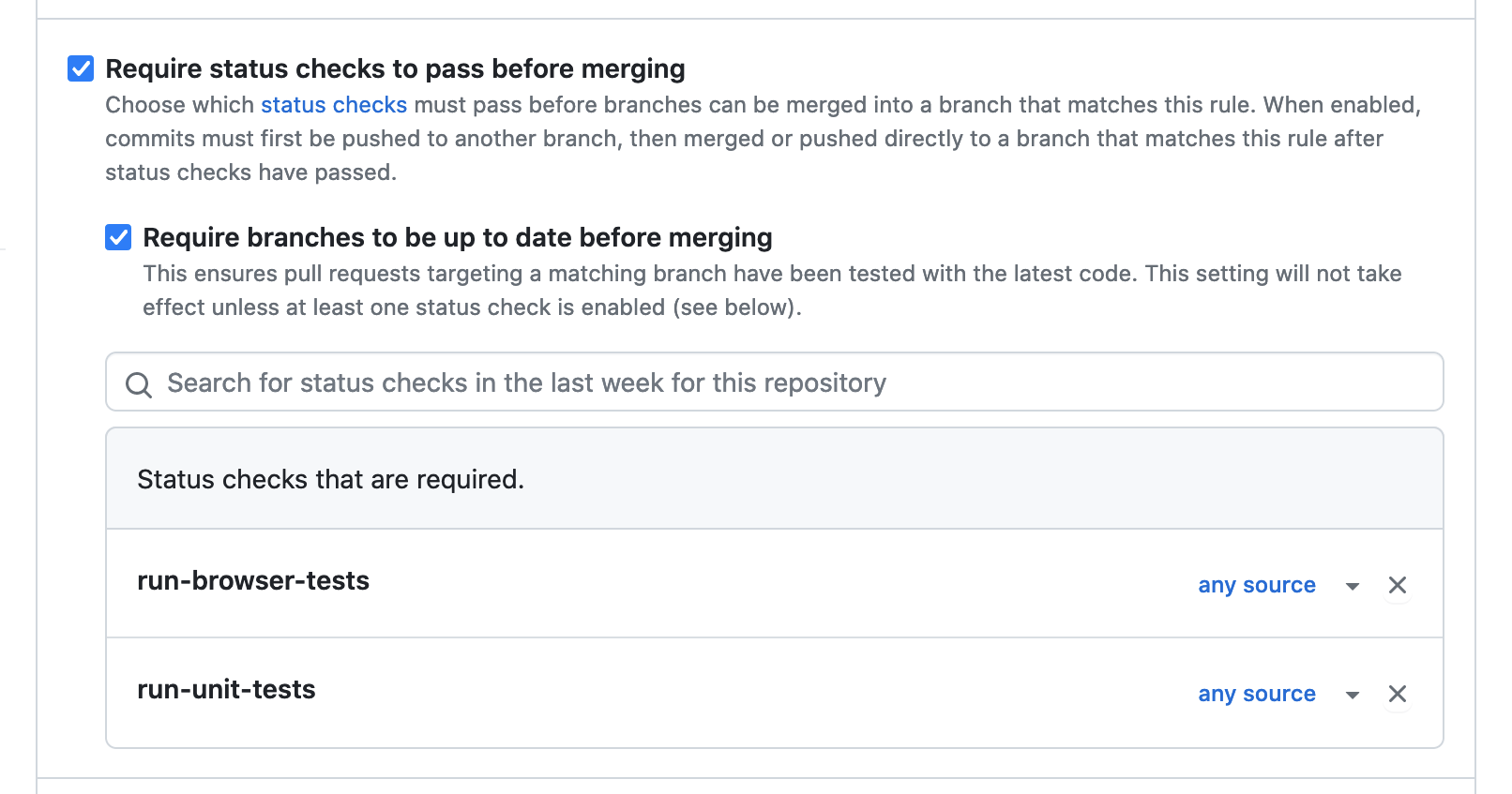Let's say you have a pull_request GitHub Action workflow that runs unit tests
and end-to-end tests on every PR that targets branch main:
name: Test pipeline
on:
pull_request:
branches: [main]
jobs:
run-unit-tests:
runs-on: ubuntu-latest
steps:
- uses: actions/checkout@v3
run-browser-tests:
runs-on: ubuntu-latest
steps:
- uses: actions/checkout@v3This is a valuable software development practice, because tests (assuming they are well designed and providing reasonable coverage) are running automatically on every PR, offering immediate feedback to developers about whether changes being included are breaking something or not.
You may have also opted to configure a branch protection rule for main,
requiring status checks (in this case, tests) to pass before merging is allowed:

By using this configuration, the workflow's jobs will be executed and reported in the pull request (visible in the Checks tab and near the merge button):

The downside of this setup is that tests will have to run and pass on each and
every PR, even when changed files are not source code (such as README updates
and documentation contributions).
In such cases, couldn't the test executions be skipped, providing the ability to immediately merge the PR and spare (potentially billable) workflow execution time?
Let's see how we can achieve this!
First, let's make use of tj-actions/changed-files and add a new step in each job to get the list of changed files (excluding markdown files):
jobs:
run-unit-tests:
runs-on: ubuntu-latest
steps:
- uses: actions/checkout@v3
- name: Get all changed file(s), excluding the docs
id: changed-files-excluded
uses: tj-actions/changed-files@v35
with:
files_ignore: |
**/*.mdThe output of this step can now be used in subsequent steps, so that they are executed only if changed files are not markdown:
- uses: actions/setup-node@v3
if: steps.changed-files-excluded.outputs.any_changed == 'true'
with:
node-version: "16.x"In this way, jobs will still execute with a success status (which is needed
for PR checks), with individual steps themselves being skipped.
Please note that the setup above can probably be optimized to not require if
to be included in all subsequent steps, but instead immediately interrupt the
job and exit with status 0 (no errors).
Also note that there are most likely other ways to achieve this outcome, such as for example using fkirc/skip-duplicate-actions, but I have not explored them in detail.
Also note that in case you have status checks configured like we do in this example, in order to achieve this outcome, the intervention will have to be at the job-level (and not workflow-level).